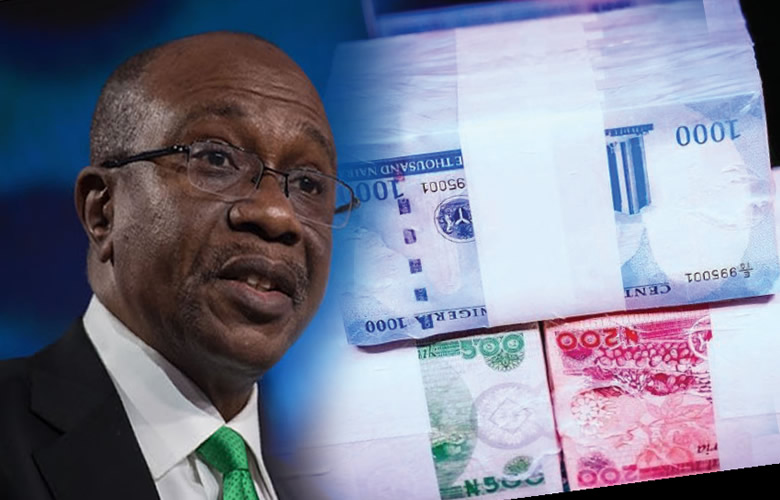
This was disclosed by the CBN governor Godwin Emefiele on Sunday, January 29, 2023, as part of his updates following a meeting with the President, Major General Muhammadu Buhari (retd.).
Emefiele noted that the apex bank had been able to reduce the currency outside the banking system to N900 billion from a whopping N2.7 trillion following the announcement of new naira notes.
President Buhari in November 2022 had launched the new naira notes of N200, N500, and N1,000 denominations, which are aimed at combating counterfeiting, improving the effectiveness of monetary policy tools on inflation, as well as mopping excess liquidity.
Emefiele said, “Ladies and gentlemen, available data at the Central Bank of Nigeria has shown that in 2015, currency in circulation was only N1.4 trillion.
“As of October 2022, currency in circulation had risen to N3.23 trillion out of which only N500 billion was within the banking industry and N2.7 trillion held permanently in people’s homes.
“Ordinarily, when the CBN releases currency into circulation, it is meant to be used and after effluxion of time, it returns to the CBN thereby keeping the volume of currency in circulation under the firm control of the CBN.
“So far and since the commencement of this programme, we have collected about N1.9 trillion.”
The CBN governor also added that the initiative recorded over 75% success rate, out of the N2.7 trillion held outside the banking system.
Emefiele noted that Nigerians in the rural areas, villages, the aged and vulnerable had had the opportunity to swap their old notes; leveraging the naira swap initiative as well as the CBN senior staff nationwide sensitisation team exercise.
Deadline Extension
The CBN governor also announced the extension of the deadline by 10 days to February 10, 2023, to allow for the remaining old notes in the economy to be returned to the banks.
“A 10-day extension of the deadline from January 31, 2023, to February 10, 2023 to allow for the collection of more old notes legitimately held by Nigerians and achieve more success in cash swap in our rural communities after which all old notes outside the CBN lose their legal tender status.
“Our CBN staff currently on mass mobilization and monitoring together with officials of the EFCC and ICPC will work together to achieve these objectives,” Emefiele said.
He also noted that a seven-day grace period from 10 to 17 February 2023 is given to Nigerians to allow the depositing of old notes at the CBN after the deadline, in compliance with Sections 20(3) and 22 of the CBN Act.
What this means: The huge recovery of circulating currency by the central bank, will help make monetary policy more effective in taming the inflation rate.
Note that while the money supply and currency outside the bank vaults were still high, the CBN increased the monetary policy rate by a combined 500 basis points in 2022, which had minimal effect on the inflation rate.
However, with the continuous hawkish stance of the apex bank, and more people in the banking system, together with the reduction of the OTC withdrawal limit, monetary tools will begin to have more impact in combating the inflation rate, which is already at a nearly 17-year high.











